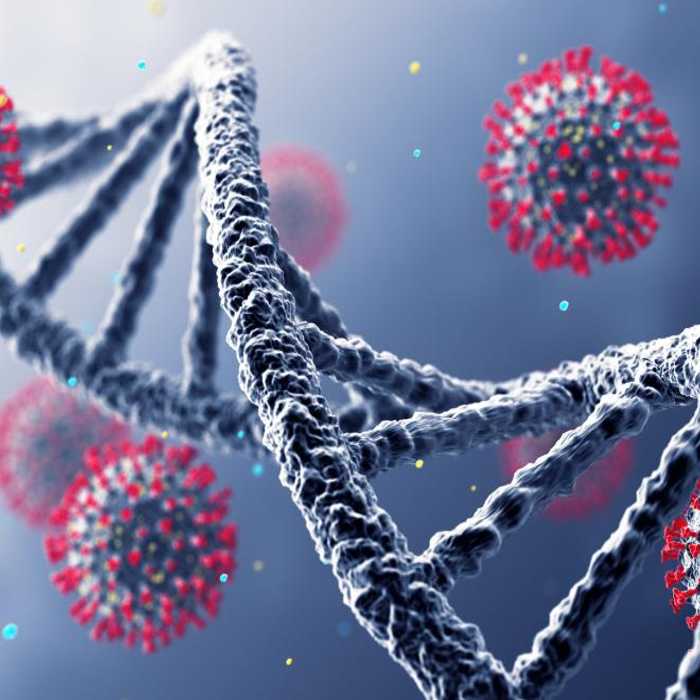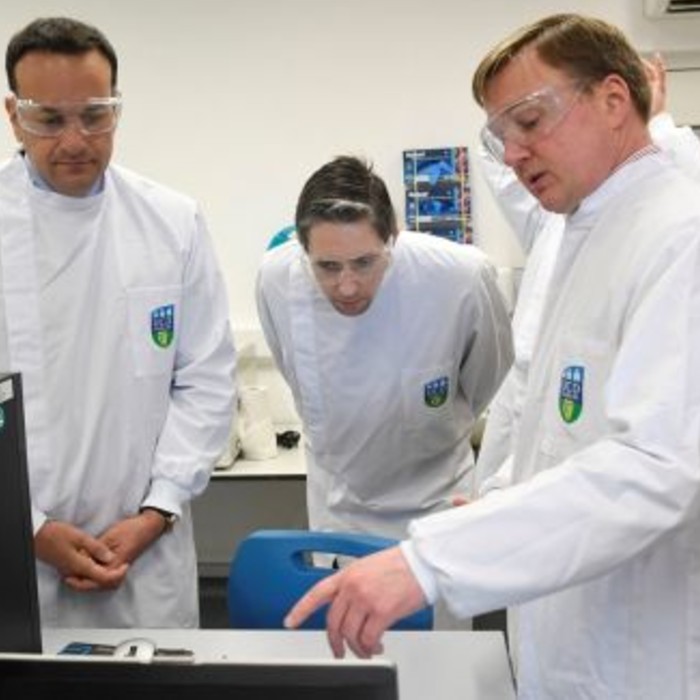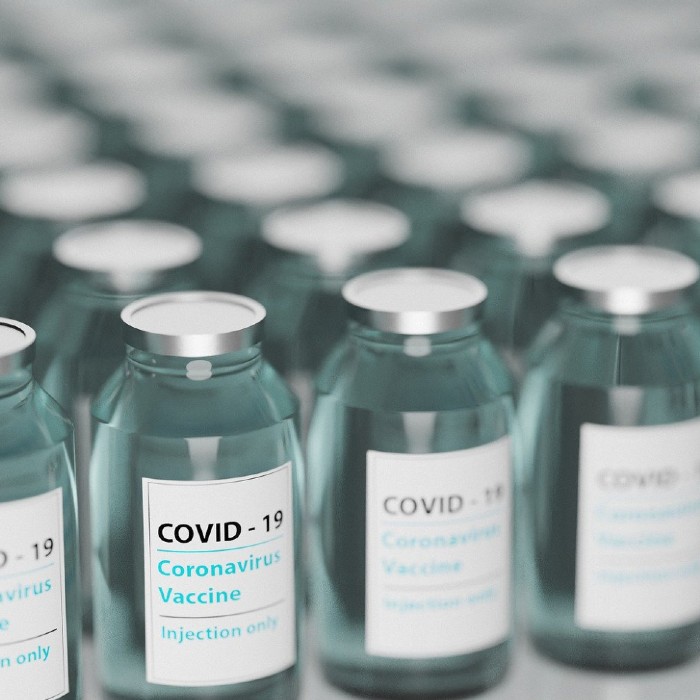COMBAT: COvid-19 Modelling through agent-BAsed Techniques
Lead Researchers: Professor Gregory O’Hare from UCD School of Computer Science
Funder: Science Foundation Ireland/Enterprise Ireland/IDA Ireland joint Covid-19 Rapid Response Fund
Understanding the spread and propagation of Covid-19 is critical in order to inform government policy and elevate public compliance with national regulations. Professor O’Hare leads an interdisciplinary team developing models that offer guidance regarding: the transmission of SARS-CoV-2; the effect of containment measures; duration and relaxation of such measures; multiple waves/multiple lockdowns; vaccine roll-out; and controlled sectoral and/or geographic return to work and school.
COMBAT will provide a world-first, population-scale Agent-based Modelling (ABM) Covid-19 model which not only characterises the disease but also the environment within which the disease exists – modelling societal, geographical and socio-economic dimensions.
Problem solving
To fully understand and combat the Covid-19 threat, computational models must be developed that may offer guidance as to how the transmission of the SARS-CoV-2 virus may progress through Irish society. A need exists to model the effect of: containment measures; duration and/or of relaxation of such measures; vaccine roll-out; and controlled sectoral and/or geographic return to work and school.
While numerous generic models pre-exist these are informed by the global spread of the virus, and are constructed at a macro level [1]. Consequently they present as being somewhat blunt when considering the specifics and peculiarities of Ireland and its people in terms of employment patterns, population dispersal, demographics, the nature of Irish transport and infrastructure and indeed the psyche of the Irish as a nation.
This project aims to develop a model which, while informed by global models, will be tuned to reflect the Irish context. It will enhance existing models by moving beyond deterministic (not random) and stochastic (randomly determined) models by adopting Agent Based Modelling (ABM) approaches.
COMBAT will extend ABM approaches, embracing Hybrid Agent-Based Modelling, thereby enabling and facilitating the inclusion of system dynamics and compartmental modelling which are particularly suited to the integration of live data.
COMBAT will deliver a model localised to the Irish context and is both dynamic and responsive, allowing for the ingesting and discovery of dynamic data from a rich and diverse set of sources.
What will the research project do?
COMBAT provides fundamental innovation and scientific advancement over previous approaches.
Pre-existing epidemiological models are predominantly either deterministic, overly simplistic, models based upon a finite set of mathematical equations typified by SIR/SEIR (susceptible, (exposed), infected and recovered) which divide the population into each category, or stochastic models which accommodate uncertainties by including criteria based on probabilities.
Agent-based modelling differentiates itself by enabling emergent population-level phenomena that are distinct from, and fundamentally more informative than, the mere aggregation of individual behaviours offered by deterministic and stochastic modelling approaches. Agent-based modelling offers a bottom-up approach, in which behaviours at the micro-level give rise to dynamics at the macro-level [2].
COMBAT will model citizens as agents exhibiting the key properties of autonomy, genetic diversity, feedback, and stochasticity (lacking any predictable order or plan). This is in stark contrast to the homogeneous, consistent, static behavioural models adopted elsewhere and generally applied to entire population models which fail to react, and are impervious to, the dynamics of the disease, policies and social networks – and which singularly fail to exhibit time varying and individual behaviours which are mediated by past experiences.
COMBAT will provide a world first population scale ABM Covid-19 model which not only characterises the disease, but also the richness of the environment within which the disease exists, modelling societal, geographical and socio-economic dimensions.
It will deliver a national computational resource for experimentation/modelling of infectious diseases within Ireland which will persist and which is adaptable, extensible and interoperable facilitating articulation of: specific future disease characteristics, cogent diverse data streams and prevalent government policies.
Research Impact
COMBAT will deliver key impacts for the understanding, control and required government and societal response to Covid-19 within Ireland. These will include:
- The delivery of a Covid-19 disease spread model(s) specific for Ireland.
- A modelling platform that will enable articulation of disease models enabling cross- comparison and base-lining with alternate SIR and SJIR non-Ireland-specific Covid-19 models. COMBAT models will seek to predict key disease spread indicators: rates of new infections, hospitalisation and ICU admittance, and fatality rates. They will inform policies necessary to flatten the disease curve, reduce fatalities and disperse strain on public health services and ICU spaces over a longer period.
- COMBAT models will quantitatively be assessed on a rolling basis with model disease spread indicator predictions compared against actual reported data on a daily/weekly/monthly basis. Divergence between actual and model predictions will provide a feedback loop resulting in ongoing model refinement.
- COMBAT models will be configured to ingest live data from a variety of disease indicator sources including, but not limited to, Google mobility reports, contact tracking data from the HSE (if made available), and DIAS seismic data.
- Provide an experimental sandbox to inform/frame governmental Covid-19 policy to achieve a judicious balance between risk to life and protection of the economy by examining the effects of alternative policies for lockdown, compliance, and vaccine roll-out.
- Create knowledge capital and know-how within Ireland pertaining to agent-based disease modelling which will persist post-Covid-19 and serve as a knowledge resource for any such future national pandemic/infectious disease modelling needs.
Project Partners
Professor Patrick Mallon, Professor of Microbial Diseases, St Vincent’s University Hospital (SVUH) and UCD School of Medicine
Associate Professor Rem Collier, UCD School of Computer Science
Assistant Professor David Lillis, UCD School of Computer Science
Assistant Professor Fatemeh Golpayegani, UCD School of Computer Science
Assistant Professor Vivek Nallur, UCD School of Computer Science
Assistant Professor Lina Xu, UCD School of Computer Science
Professor Karl Whelan, UCD School of Economics
Professor Martina Lawless, Research Professor, Economic and Social Research Institute (ESRI)
Professor Frank Dignam, Professor of Socially-Aware AI at Umeå University, Sweden
References
[1] Li, Y., Lawley, M.A., Siscovick, D.S., Zhang, D. & Pagán, J.A., Agent-Based Modelling of Chronic Diseases: A Narrative Review and Future Research Directions. Prev Chronic Dis 2016;13:150561.
[2] Epstein J.M. Modelling to contain pandemics. Nature. 2009; 460(7256):687.


